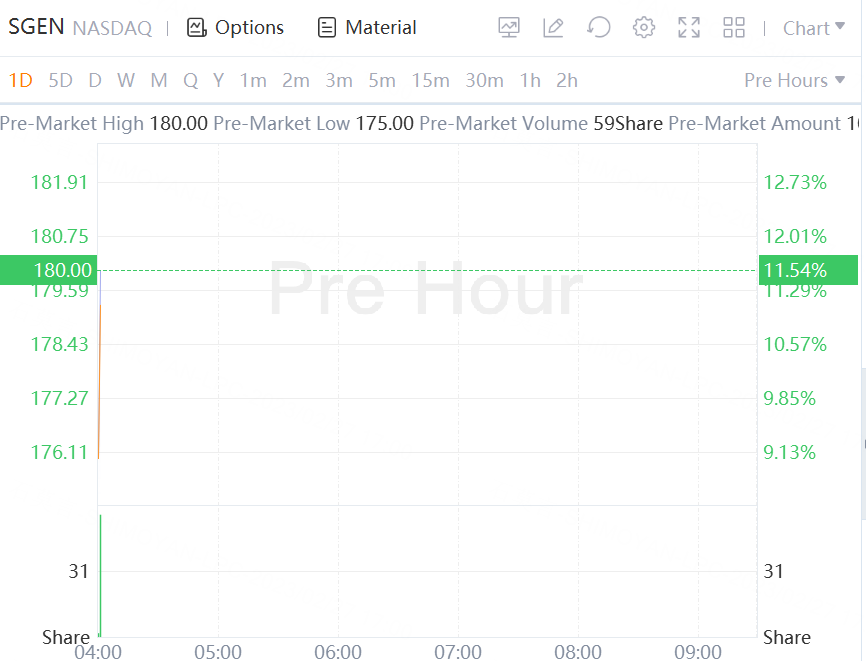Pfizer Inc. is in talks to acquire biotech Seagen Inc, according to people familiar with the matter, the latest potential deal for a big drug company aimed at adding a promising class of targeted cancer therapies. Seagen stock jumps 11% in premarket trading.
The talks are at an early stage and there is no guarantee there will be a deal, the people said. A number of hurdles would need to be overcome, including the potential for a stringent antitrust review of any proposal. If there is a deal, it would be big: Seagen has a market value of some $30 billion and would be expected to command a premium over that.
Seagen was in advanced talks last year to be acquired by Merck & Co., in a deal that would have been worth $40 billion or more, The Wall Street Journal reported at the time, but the two sides failed to reach agreement. Pfizer at the time was also looking at Seagen, people familiar with the matter have said.
After talks with Merck fell apart last year, Seagen named David Epstein, a former Novartis AG executive who more recently was a partner at venture firm Flagship Pioneering, as chief executive.
A deal would help Pfizer, one of the world's biggest pharmaceutical companies with $100 billion in sales last year, add to its lineup of cancer treatments a class of agents that have shown promise working with so-called immunotherapies against some of the most prevalent tumors.
It could also help Pfizer offset $17 billion in sales that the company projects it could lose due to patent expirations by 2030. Pfizer has set a goal of adding $25 billion in revenue by the end of the decade from business-development moves including acquisitions. Seagen had nearly $2 billion in sales last year.
New York-based Pfizer is flush with cash. The drugmaker has some $22.7 billion from sales of its Covid-19 vaccines, drugs and other products.
Last year, Pfizer acquired sickle-cell-drug maker Global Blood Therapeutics Inc. for more than $5 billion and the rest of Biohaven Pharmaceutical Holdings Co. for more than $10 billion.
Seagen, of Bothell, Wash., helped pioneer a class of cancer therapy known as antibody drug conjugates that works like a guided missile attacking tumors with toxic agents.
The therapies had been approved for cancers like Hodgkin's and other lymphomas, and more recently have shown promise in combination with an immunotherapy against other kinds of tumors including a form of breast cancer.
The potential in breast cancer could be particularly appealing to Pfizer, which has a top-selling drug, named Ibrance, treating the condition.
The Food and Drug Administration is reviewing whether to approve a combination of the Padcev antibody drug conjugate, from Seagen and Astellas Pharma Inc., and Merck's Keytruda immunotherapy for treatment of advanced bladder cancer.


